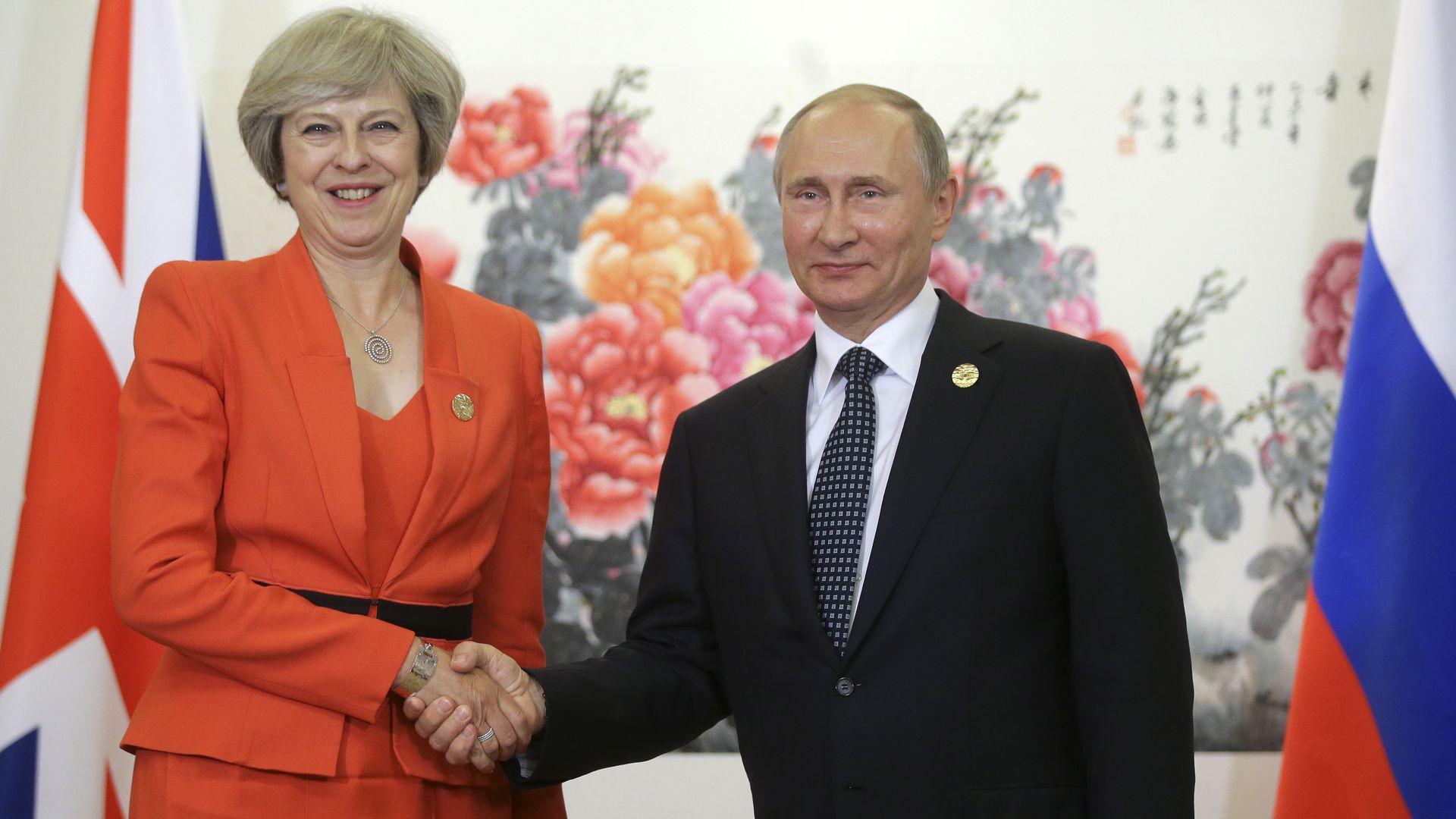Mar 16, 2018 - World
Putin's asymmetrical war on the West
Add Axios as your preferred source to
see more of our stories on Google.

Putin and May meet in 2016. Photo: Mikhail Metzel\TASS via Getty Images
Sir Francis Richards, the former chief GCHQ (Britain’s version of the NSA), compares the "new Cold War" to the last one in a fascinating interview on the Economist Radio podcast:
“I think ‘war’ is … almost an obsolete word, in that war tends to imply that you have peace and then someone presents a bit of paper and then you’re the other side of a line. We’re in a perpetual conflict… it has rules that bind us but none that bind the aggressors.”
Why it matters: A Russian-manufactured chemical weapon was deployed in a British town, evidently at the behest of the Kremlin. In response, Theresa May expelled Russian diplomats. Now Vladimir Putin is preparing to expel Brits, all while claiming the West is acting hysterically and has no evidence. No western country seems to know how to fight on these terms.
More from Richards, on Cold War parallels:
- “The Cold War was propelled by entirely different motivations. The Russians, essentially, were protecting a status quo in Europe. They didn’t want any instability on their patch — they didn’t really want instability in Western Europe either. They wanted everything to stay exactly how it was. They had annexed half of Europe at the end of the second world war, they didn’t want anybody interfering with that.”
- “Everything [has changed]. Russia is slightly democratic in the sense that they have elections every now and then about which the president — despite his significant scope for manipulating them — does get worried. He has to mind about Russian public opinion. He has to worry about the day too in which he has to hand off to someone else.”
On the latest front:
- "Skripal has been in the West for quite a long time. One has to ask, ‘why now?’ Has some decision been taken? There might have been some strategic decision to go rather harder after defectors, I don’t know. But, the fact that it has taken place just before a Russian election has to be significant in one way or another."
- “If you just want to kill a double agent as part of a purge that, for reasons of your own you have decided to carry out, and if you’re doing it just before a Russian presidential election, you do not choose to do it with a chemical weapon which immediately ties the action to the Russian government and which raises its profile several hundred percent unless you’re trying to make a very strong and public point."
"The point is that you do not mess with Russia, and you especially do not mess with Putin’s Russia.”— Sir Francis Richards
